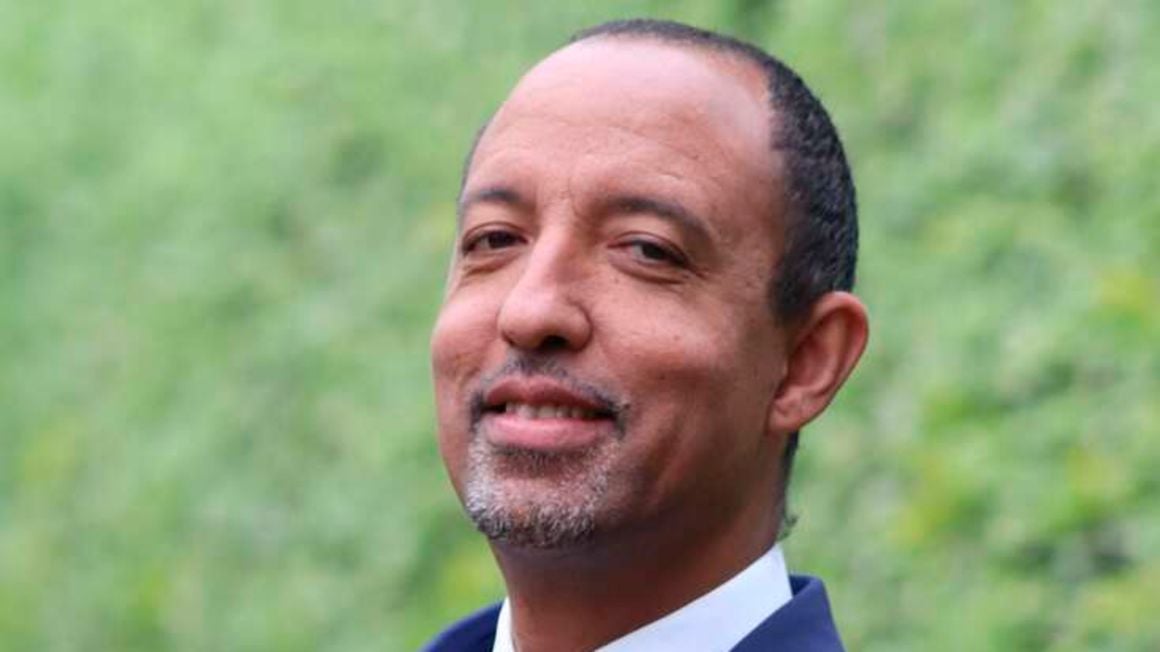
Oscar Njuguna, acting CEO Nairobi International Financial Centre (NIFC). PHOTO | DIANA NGILA | NMG
Summary
- NIFC, first mooted more than a decade ago, is mandated to support the transformation of Nairobi into a financial hub.
- However, its rollout has taken time due to delays in setting up a board of directors to oversee its operations and publication of rules to operationalise the NIFC Act.
- The Treasury has, however, moved to kickstart the centre, promising to publish a framework for attracting investments and financial services into the centre by the end of December this year.
This week, the Nairobi International Financial Centre (NIFC) signed its first deals with British insurer Prudential Plc and business lobby group TheCityUK ahead of its official launch later in the year.
NIFC, first mooted more than a decade ago, is mandated to support the transformation of Nairobi into a financial hub.
However, its rollout has taken time due to delays in setting up a board of directors to oversee its operations and publication of rules to operationalise the NIFC Act.
The Treasury has, however, moved to kickstart the centre, promising to publish a framework for attracting investments and financial services into the centre by the end of December this year.
The Business Daily spoke to the acting chief executive of the NIFC, Oscar Njuguna, for more insights into the operations of the NIFC and its plans to attract investment into Nairobi as a regional financial hub.
BY DEFINITION, SOME FINANCIAL CENTRES ARE TAX HAVENS, OTHERS ARE SET UP TO OFFER SPECIFIC INCENTIVES WHILE OTHERS ARE INTEGRATED INTO THE BROADER ECONOMY. WHAT FORM IS THE KENYAN ONE GOING TO TAKE?
We have described ours as a hybrid model, because we are not creating a carved-out separate jurisdiction. It is akin to a virtual special economic zone.
You can be based anywhere so long as you have the registration of NIFC, but you will not be able to do regulated activities without the approval of the existing regulators in the country.
There will be no gaps in regulation. We will ensure that some of the issues that people have raised about financial centres such as money laundering and evasion of taxes don’t happen here and that there are no gaps around issues of secrecy.
Once you apply for an NIFC certificate, you also have to show us the strategic benefit of having you here, so that it’s not just a case of admitting people because they have capital.
The certificate entitles you to get the incentives and hopefully make your life easier, but you still need to get approval by the existing regulatory bodies.
Our regulators can also come up with bespoke rule framework that allows certified firms to engage in certain activities without having to comply with all the rules that are in place for their sector.
THERE ARE ESTABLISHED FINANCIAL CENTRES WITHIN OUT ORBIT, SUCH AS DUBAI AND QATAR. HOW ARE YOU DIFFERENTIATING NAIROBI FROM THESE CENTRES?
The differentiation is that people and investors will go to where there is an opportunity to invest and make a return from their investment.
Kenya represents an opportunity because there is a huge gap in the region in terms of infrastructure and other sectors, with a lot of untapped opportunities.
The African Continental Free Trade Area (AfCFTA) is also in place now and can unlock a lot of the latent potential for business.
The reason people will come here is not necessarily for the NIFC itself, but because of the opportunities it offers them to make business, invest and grow in the region.
This is not just for international businesses, but also local ones which can take advantage of the centre and grow their cross-border presence.
We can create frameworks where the holding companies for such institutions, for example banks, can do business in other jurisdictions and benefit from incentivised tax rates for the business they do outside of Kenya.
WHAT INCENTIVES ARE YOU OFFERING PARTNERS TO ATTRACT THEM TO NAIROBI?
The first thing is to create a more efficient registration framework with a single point of entry which will end the need to go registering various offices.
Other incentives are around tax predictability. We have taxes that change every year, sometimes quite considerably.
For investors such as a private equity looking to invest in projects, they need to plan ahead. They, for instance, will need to be sure of the capital gain taxes they will pay when they exit in a few years’ time.
We also want to make it easier for investors to deal with regulatory bodies such as the KRA, and immigration for work permits, offering them a single contact point so that any issues they have are dealt with efficiently and quickly.
We also have a mandate within our Act to work with other stakeholders to improve the wider legal and regulatory framework.
We have, for instance, proposed a financial disputes court to deal with financial issues with dedicated judges experienced in such matters. This can help our dispute resolution status.
HOW WILL THE NIFC BENEFIT LOCALS? IS IT BEING SET UP TO SERVE ONLY EXTERNAL INTERESTS?
First of all, anyone can apply to the NIFC, it is not limited to external entities. As we structure incentives for participants, we want to encourage and direct investments into new areas so as to open new opportunities for Kenyans. For instance, there is no need to incentivise an insurer to come to Kenya to do motor vehicle or medical insurance. That is something that is already catered for here.
We are encouraging joint ventures or partnerships between international and local institutions, which will help our local companies grow.
We have talked about prioritising private equity and venture capital, which will go into areas such as PPPs and benefit us by reducing government expenditure and crowding in private sector investors who will develop infrastructure and create jobs for Kenyans.
When you bring in companies to operate here, you also create a demand for local services that will allow local businesses to participate and flourish. It is about growing the size of the cake, rather than just trying to ring-fence a sector for others.
You can have local protection while opening up the space to international players, and that is the goal.
WE DON’T HAVE A VERY DEEP FOREX MARKET BY INTERNATIONAL STANDARDS, AND THEREFORE THE CENTRE MIGHT EXERT FOREIGN CURRENCY PRESSURE ON THE COUNTRY. HAVE YOU HAD TALKS WITH CBK ON HOW THE NIFC WILL AFFECT THE FOREIGN EXCHANGE MARKET?
We haven’t had discussions with the CBK on that. But we know that the CBK has been exploring ways on how we can expand our forex market, for instance, considering allowing the China Renminbi as a trading currency.
This would mirror the many centres that have Renminbi centres where they are able to sign swap agreements as central banks and make transactions between local or regional jurisdictions and China easier.
However, local currency transactions are also important, and we would like to encourage them in the NIFC.
We have to look, however, at what extent is it going to be an impediment for the growth of Nairobi as a true financial centre and what allowance can be given to firms to do transactions in foreign currency.





No comments :
Post a Comment